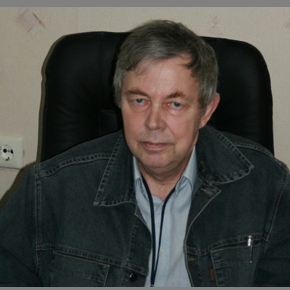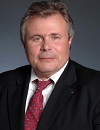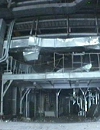Talks on Russia's associate membership in the European Center for Nuclear Research (CERN) could begin in the next few months, Deputy Education and Science Minister Sergei Ivanets said on Wednesday.
The 56-year-old CERN, which operates the $5.6 billion international Large Hadron Collider (LHC) project, has recently opened membership to non-EU countries through the associate member status.
Russia, which currently has an observer status along with India, Japan, Turkey and the United States, has made significant contributions to research at CERN and should have greater access to the equipment and the data produced. Israel was an observer until it was granted associate membership in April.
"Joining CERN is an important moment for Russia because its participation [in CERN activities] in terms of numbers, research results, and contributed equipment is really great," Ivanets said. "It would be only fair if we also shared the rewards of this participation."
Ivanets said that CERN had yet to determine the conditions for associate membership, but it should not take more than a few months.
"I think talks could start in a few months, when at least the preliminary conditions are clarified," the official said. "As for the duration of the talks, they could take at least a year, but this is only an estimate."
Ivanets said associate status would be the most suitable form of cooperation with CERN for Russia because it would give Russian scientists more rights on the use of the results of scientific research and more time for conducting experiments on CERN's equipment, including the LHC.
Founded in 1954 by 12 European countries with the aim of restoring the continent's role in physics research after the devastation of World War II, CERN currently has 20 members.
But it also has nearly 8,000 scientists from around 80 countries working in or with its projects.
Russia alone has provided 700 physicists and engineers to take part in the LHC project, which aims to recreate the conditions that existed immediately after Big Bang at the beginning of the universe 13.7 billion years ago.
Russia joined the project in 1996, when Moscow signed an agreement with CERN stipulating an annual investment of $6 million over 10 years.
Russian companies have manufactured a wide range of equipment for the LHC. In particular, a Russian firm produced 80,000 crystals of lead tungstate for one of two large general-purpose particle physics detectors built on the collider.
Rosatom will no longer be required to get a special license from the U.S. Department of Commerce to cooperate with American companies.
Element 114 was first synthesized in December 1998 by bombarding plutonium nuclei with calcium nuclei, which have 94 and 20 protons respectively.
Russia is to decommission and dismantle 42 nuclear facilities by 2015 and 188 by 2020, Rosatom department head Yevgeny Komarov said.



